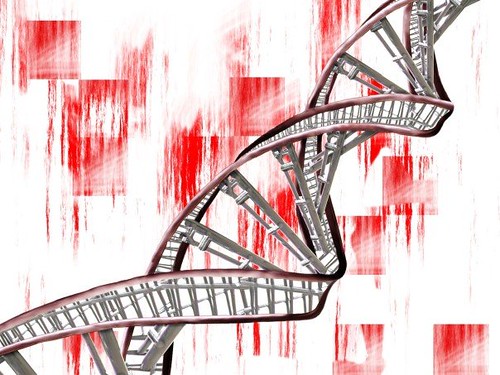 |
| Photo credit: Sara Fulcher on Flickr |
Arnold's lab doesn't synthesize enzymes as other labs do. She and her team "evolve them" toward a certain desired goal in the same way that nature has done it for 3.5 billion years.
Aronold presented an overview of her budding field of work to an audience at American Association for the Advancement of Science annual meeting (#AAASmtg) in Washington DC. The field of directed evolution is relatively new and includes few people at the present time, but Arnold sees high hopes for the future.
"When I started engineering proteins a long time ago, there appeared to me an algorithm that dos a really good job and that's evolution," she said. "Evolution works because the regions that life has discovered and explored are rich in function. Directed evolution exploits smooth paths in the fitness landscape."
The fact is, DNA is cheap and easy. Designing it isn't.
"We're getting really good at making DNA. The price is dropping every day," Arnold said. "But we don't know what to write. We can synthesize any sequence. We can insert new code (referring to Craig Venter's recent success), but we don't know how to write it. We don't even know how to write a single protein."
And, when it comes to enzymes for use inside a complex biological system, she says,"Details matter. We don't understand the details."
Freed from constraints of worrying about biological function, directed enzyme evolution allows Arnold's team to explore new pathways and possibilities.
Arnold presented a few of her enzymes that have been created through directed evolution. Her source materials are from every possible place -- the "heel of your shoe," for example -- and she doesn't limit herself to what's available.
 |
| Frances Arnold |
Where is directed enzyme evolution going in the future? Arnold says that functional protein can be used in several ways. One example Arnold gives is in materials chemistry, such as the work of Angela Belcher of MIT, who uses virus proteins to enrobe minerals onto protein coats.
"You can make a virus that really loves to bind to a single-walled carbon nanogen," Arnold said, which would be a boon for semiconductor technology.
There is really no end to the influence that directed enzyme evolution could have on the world, from highly specific targeting in biological systems to technology.
In short, there's no doubt of an exciting future in intelligently designing new biology.